Completed evaluations
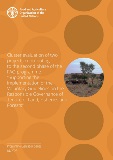
Cluster evaluation of two projects contributing to the second phase of the FAO programme ″Supporting the Implementation of the Voluntary Guidelines on the Responsible Governance of Tenure of Land, Fisheries and Forests“
25/04/2023
The evaluation emphasized the need to invest in political economy analysis and to strengthen integration with other actors. Increased attention could be paid to identify ways to increase linkages between capacity development and multisectoral dialogue on the one hand, and decision-making processes on the other.
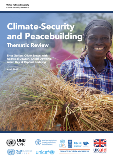
Thematic Review on Climate Security and Peacebuilding
19/04/2023
The 2023 Thematic Review on Climate Security and Peacebuilding distills trends and lessons from climate-security and environmental peacebuilding programming supported by the Peacebuilding Fund, and suggests guidance for future investments in climate-security efforts in fragile and conflict affected contexts.
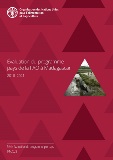
Evaluation of FAO's country programme in Madagascar (2018–2021)
11/04/2023
The evaluation identified different priorities for the next Country Programming Framework: support for dialogue within the rural development and environment strategic consultation platforms, promotion of holistic approaches integrating agriculture and sustainable natural resources and a communication strategy involving other partners.
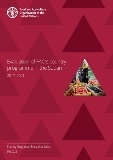
Evaluation of FAO's country programme in the Sudan (2017–2021)
24/03/2023
As a result of the current crisis in the Sudan, growth has slowed down and food insecurity has become more severe. FAO's programme has provided critical technical support at the sector level, particularly in the area of food security and livelihoods, as well as bridging the gap between its emergency and development interventions. However, it did not have the opportunity to provide policy advice and to engage strategically.
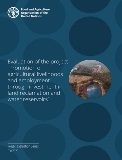
Evaluation of the project ''Promotion of agricultural livelihoods and employment through investment in land reclamation and water reservoirs''
18/03/2023
The project aimed at strengthening the capacity of the Green Plan, improving the know-how of small and medium farmers and their livelihoods through land reclamation and water conservation in addition to creating job opportunities in the agriculture sector. The project was relevant to FAO’s global mandate and its work in Lebanon as well as aligning itself with the government’s strategy for agriculture.
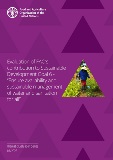
Evaluation of FAO’s contribution to Sustainable Development Goal 6 – “Ensure availability and sustainable management of water and sanitation for all”
08/03/2023
This evaluation assessed the extent to which FAO’s work has been relevant and effective in supporting its Members to achieve Sustainable Development Goal 6 (SDG 6). FAO has a comparative advantage in several key SDG 6 target areas and addressed needs and demands from Members in all SDG 6 target areas. However, overall FAO’s strategic approach to water-related activities remains.
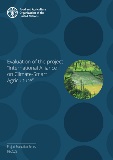
Evaluation of the project "International Alliance on Climate-Smart Agriculture"
08/03/2023
The project effectively achieved its stated outputs and outcomes and was a key contribution to the international coordination and collaboration on CSA. FAO should consolidate its thought-leadership position in CSA. FAO should also consolidate its institution-wide support to GACSA and GACSA should engage with all relevant FAO divisions of work, from global to local. Finally, FAO should consolidate and scale the project results in Botswana and Ecuador.
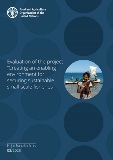
Evaluation of the project "Creating an enabling environment for securing sustainable small-scale fisheries"
07/03/2023
It was found that the SIDA-SSF project was robustly designed, relevant and responsive to needs and emerging opportunities to further the implementation of the SSF Guidelines. Recommendations include actions to be taken by the SIDA-SSF project Core Team and FAO.
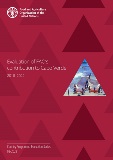
Evaluation of FAO’s contribution to Cabo Verde 2018–2022
06/03/2023
FAO remains a reference institution for rural development and the country's maritime economy, assisting the country in institutional strengthening. However, critical issues remain regarding FNS governance. FAO played a crucial role in the design and initial implementation of the overall strategic, programmatic and institutional framework of the blue economy. A more incisive contribution to the sector of small/artisanal fishery is needed to address the blue economy challenges.
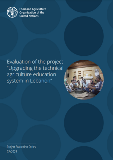
Evaluation of the project “Upgrading the technical agriculture education system in Lebanon”
17/02/2023
The project aimed to offer access to agricultural technical vocational training to young Syrian and Lebanese students including enrolment in the Lebanese public secondary-level technical degree programme of the technical baccalaureate in agriculture. The evaluation found that the project was highly relevant to the needs of the government and beneficiaries, and delivered on its obligations despite the complexity and the challenging operational environment.
